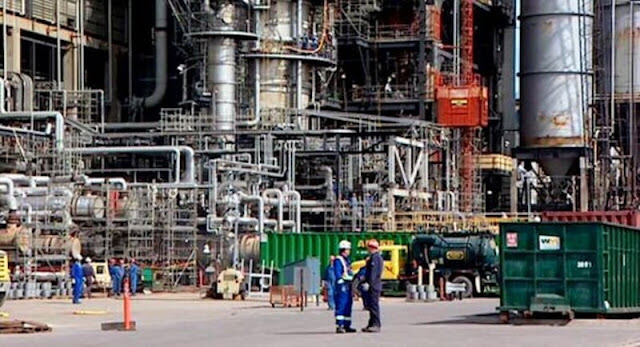By Emeka Nwankpa
Here we go again! Our nation has become a place where serious issues become jokes on the social media. On trending is the talk over NNPC’s proposal to acquire a 20 per cent equity stake in the upcoming Dangote Refinery worth $2.76 billion.
One does not have to be a certified oil investment expert but facts in the public space indicate that the Federal Executive Council approved the proposal as a national energy security plan for all Nigerians whose lives and livelihood revolve around petrol products. Can anybody be more concerned and patriotic? And for coming up with such plan in a nation currently on the throes of crime and criminality, NNPC should rather be commended not vilified.
The Dangote project has the largest single train petroleum refinery in the world with the capacity to produce enough to meet Nigeria’s petrol needs and for export. It can meet 100 per cent of the nation’s requirement with refined products, namely petrol, diesel, kerosene and aviation fuel with much surplus of each of these products for export. This should mark a new dawn for our nation, Nigeria!
We should avoid comparing apples with oranges. The decision of NNPC to take a 20 per cent stake in the Dangote Refinery is in line with a government directive stipulating the mandatory participation of the corporation in any privately owned refinery that exceeds 50,000 barrels per day capacity. The step is consistent with its corporate objective to grow the domestic refining capacity and improve petroleum products supply from local refineries.
There is a sound justification in investing in a private sector driven project: A resource-dependent country such as Nigeria cannot but show interest, and have a stake, in a business that borders on energy security and has fiscal security implications for the economy.
Now to more facts: NNPC’s 20 per cent acquisition stake translates to 130,000 barrels per day (bpd) capacity from the brand new 650,000 bpd Dangote Refinery for $2.76 billion whereas the comparison with Hollyfrontier only seeks to acquire 97-year-old 115,000 bpd refinery from Sinclair Oil for $2.6 billion.
The Hollyfrontier deal alongside its affiliate, Holly Energy Partners, seeks to acquire almost all of Sinclair Oil’s refining, renewable diesel and logistics assets for $2.6 billion. It is not the same as the acquisition of the 20 per cent stake in Dangote Refinery by the NNPC.
Equally misleading is the lame assumption that Hollyfrontier is buying 678,000 bpd refining capacity from Sinclair for $2.6 billion. Fact is that the combined business of Hollyfrontier and Sinclair has an expected refining capacity of 678,000 bpd after the acquisition. Hollyfrontier already has refineries; it is only adding Sinclair’s two refineries, with a combined capacity of 115,000 bpd to its portfolio.
Of the 115,000 bpd capacity, the first refinery, with a capacity of 85,000 bpd, was built in 1924, 97 years ago while the second refinery, with a capacity of 30,000 bpd, was built in 1992. Only two refineries are being purchased here.
It is downright irrational to compare a facility built 97 years ago with the modern, state-of-the-art and technology-driven Dangote Refinery.
But NNPC is not the first national oil company to buy equity in other refineries. For example, in 2017, Rosneft a Russian government-owned oil company acquired a 49 per cent stake in India’s Essar refinery with a capacity of 400,000. In 2019, Saudi Arabia’s Aramco had almost concluded a deal to acquire a 20 per cent stake in reliance refinery-owned by Mukesh Ambani group before COVID-19 pandemic struck.
All points considered, the NNPC Dangote equity stake acquisition deal is a win-win for the Nigerian people. It will erase, by a single stroke, the current importation of refined petroleum products that continues to gulp our scarce foreign reserves. Nigerians will sing Hosanna as subsidy is buried.
Our struggling naira automatically rebounds with more money freed into the Federation Account. As thousands of jobs are being created, the sad spectacle of petrol scarcity for which NNPC is bleeding through subsidy payments will be over.
Emeka Nwankpa wrote from Abuja.

